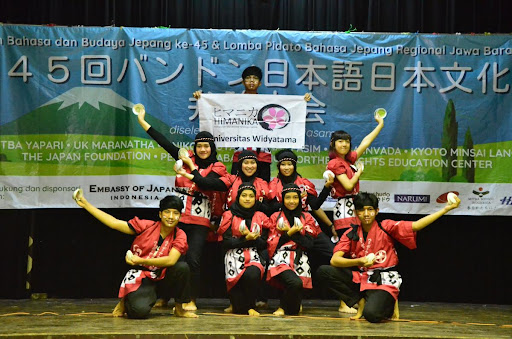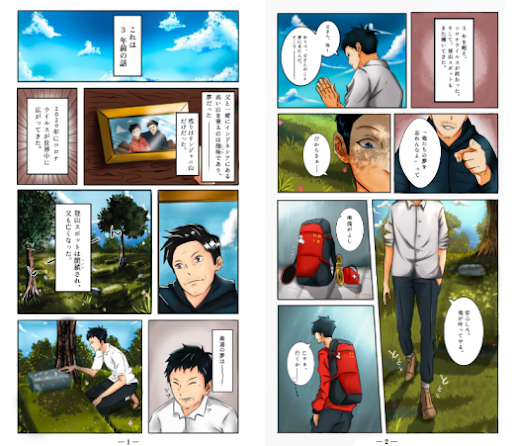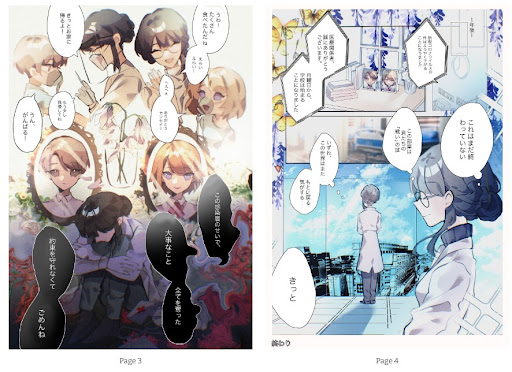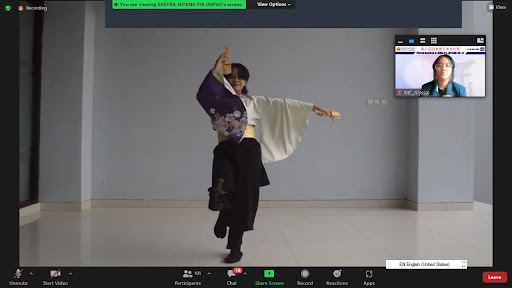From 14th until 16th of July, Padjadjaran University hosted the Japanese language and cultural week called Bunkasai. For the literal meaning, Bunkasai (文化祭) is a cultural festival or an event showcasing student’s talent. In our university, specifically from the Japanese Literature major, Bunkasai has been held annually since 1973 and has been participated by other universities and institutions related to Japanese culture in West Java. This year marks the 47th celebration of Bunkasai after being canceled two times before due to the pandemic. This event used to be held for a whole week showcasing various performances and competitions from students and participants. However, ever since the pandemic, the duration only lasts for three days.

In its early years, Bunkasai was only held to vote for a representative of west java to participate in a national Japanese speech contest held by the Japanese foundation. But as time went by they started to add other competitions, exhibitions and beautiful performances to enliven the event. Other academic competitions include calligraphy 習字, listening contest 町会, essay writing 作文, and syllabary writing 香名. Non-academic competitions such as Karaoke and vocal group are also included.
The pandemic has caused the event to be held online, which caused the committee to create new competitions to adapt to such as virtual singing contest 歌ってみよう, virtual dancing contest 踊ってみよう, reading comprehension contest 読解 and digital manga contest.


Following previous years, this year’s Bunkasai also collaborated with other universities and institutions in West Java including UPI, Yapari Japanese language School, Widyatama University, UNIKOM, Pasim University, INVADA Language School, and Maranatha University along with Kyoto Minsai Japanese Language School, OS Selnajaya, and Gakushudo. The first day started with a performance from students and a showcase of the entry videos of singing, dance, and digital manga contest followed by virtual reading, listening, and calligraphy contest. The second day was mainly filled with exhibitions from lecturers, language schools such as Kyoto minsai and Ouji.
Institutions for job training and internship to Japan such as Meisou, OS Selnajaya and a Japanese organization called Sumitomo Foundation helped fund researchers all over the world who have Japanese-related research projects or other cultural preservation projects that aim for the betterment of human society and their cultures. These exhibitions undoubtedly help us, students, to gain more insights of Japanese language and culture. On the last day they announced and rewarded the winners of all the competition.

Japan’s multifaceted culture has been quite a phenomenon all over the world. Lots of people from various countries are taking interest in their language and culture as a result of the high popularity of Japan’s incredible work on their animations, comic books, and technology. Undeniably, the rise of Japanese Pop culture has been a global phenomenon of the late twentieth and early twenty-first centuries. Japan has been famous for being one of the countries with a “soft power”, a term made by a political scientist, Joseph Nye, that describes an ability of a country to sway other nations and people through the attraction of culture as opposed to “hard power” that is associated with military and economic capabilities.
Through Bunkasai we can see how enthusiastic people are towards Japanese culture and literature, that it even amazed Mrs. Nozomi Inuzuka, one of the judges for the reading comprehension contest. “These students have such astonishing pronunciation and calligraphy. I am surprised that they know more details and are better at it than Japanese people, and it is a good learning experience for us. As a Japanese person, I was very happy to see such a high level of interest, and it made me realize that I need to know more about my own country.”
We also got a chance to interview Mrs. Tutun, one of the lecturer of Padjadjaran University’s Japanese literature major, who’s also in charge as the chief executive for this year’s Bunkasai to share her opinion on the high interest of Japanese culture in our country. “Of course it’s incredible how the world starts to see Asian cultures as a point of interest. Back then we tended to glorify Western culture more but now we’re starting to see the beauty of Asian culture including Korea, Thailand, and of course Japan. Hopefully, by observing and loving other cultures we can use it as an example to develop our culture as well.”
Mrs. Tutun also shared that her difficulties in preparing the event was from the lack of participation among students and low human resources to help arrange the competitions. She planned for Bunkasai to be on the national level in the future. To make it happen, we need to be more supportive and participative.
To see more information about Bunkasai, you can check it out on their website. If you have a huge interest in Japanese culture and language, consider participating in the next Bunkasai!
Penulis : Clara Shinta
Reporter : Clara Shinta
Editor : Fareez Eldacca



